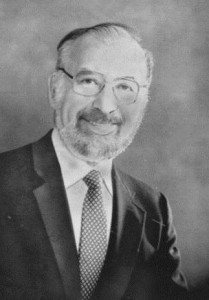On January 13, 1982, during an extraordinary period of freezing weather, Air Florida Flight 90 took off from nearby Washington National Airport, failed to gain altitude, and crashed into the 14th Street Bridge, where it hit six cars and a truck on the bridge, killing four motorists.
After the devastating crash on the bridge, the plane then continued forward and plunged into the freezing Potomac River. Soon only the tail section which had broken off remained afloat. Only six of the airliner’s 79 occupants (74 passengers and 5 crew members) survived the initial crash and were able to escape the sinking plane in the middle of the ice-choked river.
Amongst the survivors was Arland Dean Williams Jr. He was one of the six who survived the initial crash. An extraordinary scene unfolded as people gathered on a bridge and a nearby bank unable to do anything to help the survivors. Soon a rescue attempt was launched by bystanders using a makeshift rope, but it got nowhere. Eventually hope came in the form of a United States Park Police helicopter. Knowing that time was limited and the survivors were losing strength fast in the freezing water, the helicopter took unprecedented risks. At one point its skids dipped beneath the surface of the water.
Not many realized at that time but a quiet hero was emerging amongst the survivors. Every time the helicopter came around to pick the survivors, Arland quietly helped his fellow survivors get on board. In the words of a clergyman:
His heroism was not rash. Aware that his own strength was fading, he deliberately handed hope to someone else, and he did so repeatedly. On that cold and tragic day, Arland D. Williams Jr. exemplified one of the best attributes of human nature, specifically that some people are capable of doing anything for total strangers.
Eventually Arland’s strength faded and when the tail section sank he went down with it. When the helicopter returned to pick him up, he was gone. The Washington Post described what happened:
He was about 50 years old, one of half a dozen survivors clinging to twisted wreckage bobbing in the icy Potomac when the first helicopter arrived. To the copter’s two-man Park Police crew he seemed the most alert. Life vests were dropped, then a flotation ball. The man passed them to the others. On two occasions, the crew recalled last night, he handed away a life line from the hovering machine that could have dragged him to safety. The helicopter crew – who rescued five people, the only persons who survived from the jetliner – lifted a woman to the riverbank, then dragged three more persons across the ice to safety. Then the life line saved a woman who was trying to swim away from the sinking wreckage, and the helicopter pilot, Donald W. Usher, returned to the scene, but the man was gone.
On June 6, 1983, Williams was posthumously awarded the United States Coast Guard’s Gold Lifesaving Medal in a White House Oval Office presentation to his family by U.S. President Ronald Reagan.
You may also like: Sir I Won’t Be Able To Serve You!

